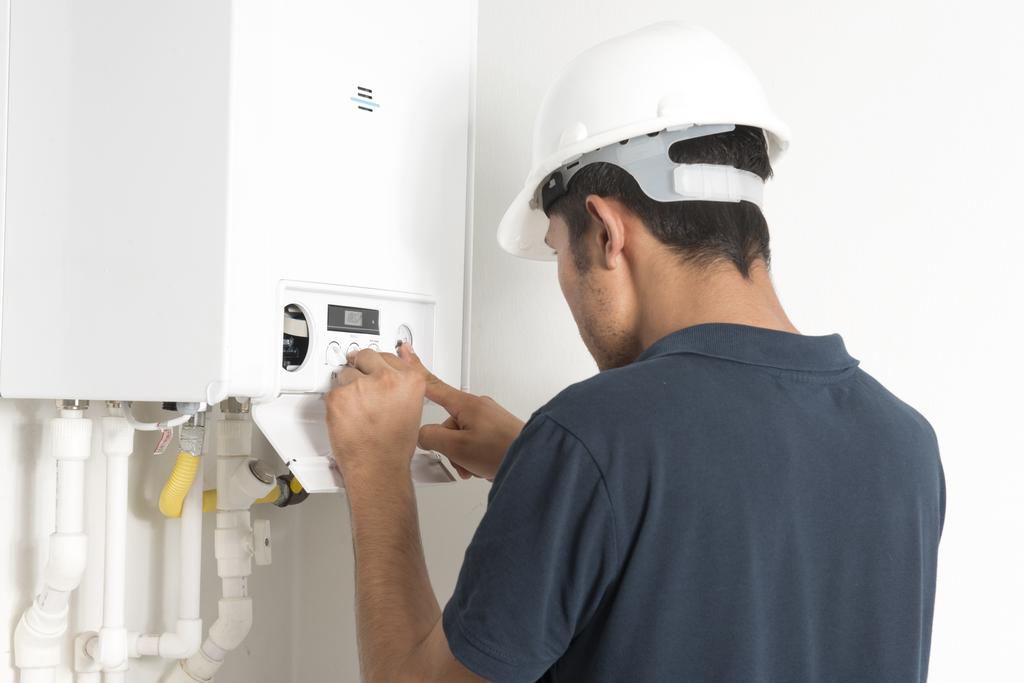Your boiler is an essential part of the home and it’s important to care for it regularly. It’s easy to forget about the boiler when you’re not actively using it, but without proper maintenance, your boiler will tend to break down at the worst possible time. Boiler repairs can be quite costly, so it’s best to avoid an abrupt issue with the boiler by ensuring you stay on top of maintenance. This is actually easier than you might think. Taking the time to resolve issues before you have a bigger problem is always worthwhile.
Most Common Boiler Problems
There are certain issues that come up more often than others with boilers. While these are a good way to keep your home warm. However, understanding how the boiler works will help you understand where to watch for potential problems.
Boilers don’t have much in the way of moving parts, which means they wear out much slower than many other types of heating systems. While this is good, it does tend to result in problems because homeowners don’t necessarily know how to maintain their system.
The boiler usually uses gas to heat water. This water enters the boiler in one pipe and then is pumped through the house, once it’s hot. The hot water passes through the radiators, radiating heat to warm up the home. This is a closed loop, so the hot water enters each radiator and then flows out the other side. It cools off as it goes, so by the time it returns to the boiler, it’s ready to be reheated.
Know Your Boiler
Any by-products produced by the heating process will be eliminated from the home through a flue. These gases can be dangerous inside the home, so you should have a carbon monoxide alarm fitted to ensure no leakage occurs.
There are various types of boilers, but this is the basic function that keeps the home heated. Once you know what is going on in the boiler, you know what you should watch for.
Common issues include:
- Water leaks
- Gas leaks
- Radiator issues
- Frozen pipes
- No power
- Non-functional thermostat
Now you need to know what to do in order to ensure your boiler continues to work well. If it is properly maintained, your boiler should last for at least a decade.
How to Keep Your Boiler Functional
If you need help with your boiler maintenance, your local boiler installers should be ready to help. They can aid with gas boiler repair and gas safety inspections, as well as answering any questions you have.
Service the Boiler Regularly
The first thing to do is schedule your boiler maintenance. You can either manage this on your own or you can hire a boiler supplier and maintenance specialist. While it is possible to do your own boiler maintenance, most people prefer to have an expert to do this for them.
Be sure to have an annual inspection each fall. This will allow you to catch any issues before they become full blown problems. Even if you do this on your own, you’ll find that inspecting everything regularly is the best way to avoid problems in the future, which could require more expensive repairs.
Bleed Your Radiators
You’ll need to bleed your radiators if the radiators are not working as well as they should. If the radiator is cold at the top or entirely cold, it’s likely there is air caught in the system and this will prevent the hot water from moving around. Your radiator may also make some odd noises if there is air caught in them. You may hear gurgling and rattling.
To bleed off the air, you should have the heat on and wait for an hour or so. Check the radiators to determine which ones need to be bled. Be careful while doing this and turn off the heat to cool the radiators.
The next step is to lay down old towels under the radiator bleed valve in each case. This will prevent any water damage to your floors. You may even want a bucket or similar container to catch any pressurized water.
Next, open the valve and let the air out. This should be done slowly. Wait until the hissing air stops and water begins to come out of the valve, then close it again. This may be done to all radiators until everything is functional again.
Check the Boiler Pressure
This maintenance check is usually fairly easy and you can check on a regular basis. The boiler should have a pressure gauge on the side and you can quickly look to see if it is out of the neutral zone and into low or high pressure.
Low pressure means there’s not enough liquid in the system. Let the system cool down before attempting to fill it up again. You’ll need to use the filling loop or link to add water until the pressure gauge reads green again.
High pressure requires bleeding the radiators, as this is almost always due to air in the system. It’s not possible for more water to enter without someone adding it.
Once you’ve adjusted the pressure in your boiler, start it up to see if the pressure changes once it’s heating. If it does continue to change, this could mean you have a faulty gauge or something bigger is occurring. You should contact a professional in this case.
Check your pressure every month or so. It only takes a second and it could ensure your boiler is fully functional for many months and even years to come.
Note Boiler Changes in Operations
Has your boiler changed in how it functions? If you notice that your boiler is cooler than usual or hasn’t been pumping water through all the radiators, it’s time to look into the problem. In some cases, you can fix this on your own, but usually you’ll need an expert in boiler repairs.
If the boiler pump needs to be replaced, an expert can quickly manage the replacement, or any other gas boiler repair that you need. Boiler repairs may not be complex, but they do require some knowledge, so having local boiler installers to come help is a very good thing. The only thing is that boiler repair cost may be more when hiring a professional, but you save on time and wasted materials and supplies which you may face if you’re doing this on your own.
Signs You Should Replace Your Boiler
Sometimes, the issue is beyond what it is worth to repair the boiler. You may need to just replace it instead. Signs you need to replace your boiler, rather than fuss about with boiler repairs include:
It’s Old
If your boiler is over a decade old, you should contact local boiler installers. Newer models have been upgraded to be more efficient and cost less to run. They’re also less likely to break down.
The Boiler Flame is Not Blue
If your boiler flame is orange or yellow, rather than blue, this indicates the boiler is producing carbon monoxide. This can be quite deadly and is almost impossible to detect. This usually means you need to replace the boiler immediately.
There Are Leaks
Is your boiler leaking? While you can replace the seals and valves, it’s a good indication that your boiler is ready to die, so you should consider replacing it.
You’re Paying More
If your boiler is no longer as energy efficient as before, this usually indicates there are more modern models that will work better.
Local boiler installers can inspect your boiler and determine if you’ll need to get a new one or if boiler repairs are a worthy option.
If you need boiler repairs, maintenance, or even a new one, you should contact West London Gas. We have all the options you need, from repair services to new, more efficient boiler installation. Contact us to learn more.

